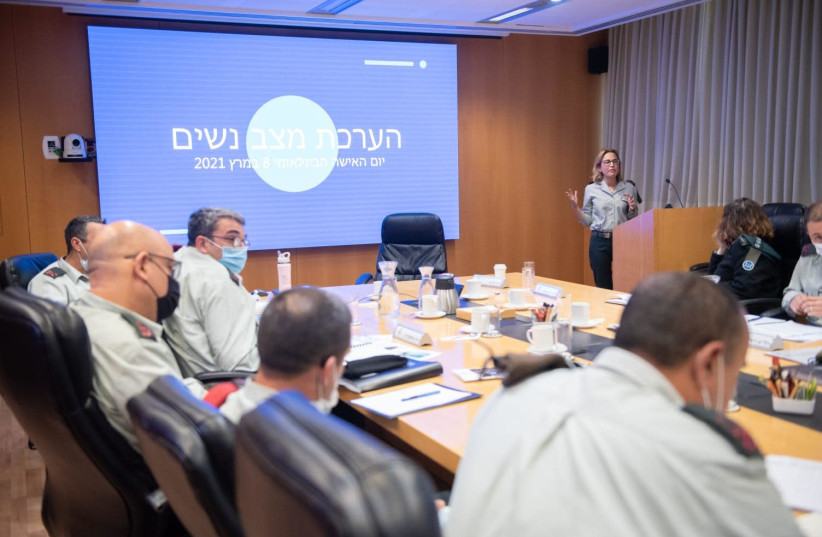In late February, I represented the Knesset at the annual open hearing of the United Nations General Assembly and the Inter-Parliamentary Union. Among the issues on the agenda was advancing gender equality as a foundation for government stability.
The list of speakers wishing to address this important issue was the largest among the conference sessions – everyone wanted to talk about the importance of gender equality. When my turn to speak arrived, I sought to place reality on the table and to collectively examine how words can change reality. In my address, I stated, “I hear big, moving words here that touch on the importance of gender quality to the stability of the world in which we all live.”
In my speech, I compared the words spoken at the conference to a beautiful photograph, in which women who make up half the world population hold central positions, lead processes and are decision-makers. In reality, the picture is very different. While women indeed work in every sector of life and most of us believe in advancing gender equality as an important factor for government stability – I have placed bills before the 24th Israeli Knesset on this very issue – the reality is that the more senior the position, the fewer women there are.
I told the conference that even at the General Assembly hall that hosted us, even at the UN, a woman has never served as secretary-general. My observation drew applause from the plenum.
The post-COVID-19 world has to recover as it marches forward and our role as parliament members from around the world is to work together toward this recovery. The goal of gender equality to boost the level of government worldwide is a common mission.

Israel has indeed had a woman prime minister in the 1970s, but at the same time, due to the ultra-Orthodox political parties that have banned women from their ranks, Israel is currently listed 64th in the global gender equality index. We must not accept that.
On March 8, International Women’s Day was marked in Israel and around the world. As they do every year, voices surfaced claiming that this is an unnecessary event. International Women’s Day was first marked in the US in 1908. Two years later, in Copenhagen, Denmark, a strategy was set to promote women’s equality, including the right to vote.
While this right has been secured and the lives we lead today are different from those of our mothers and grandmothers, there is still a long way to go. We have yet to complete the journey to full gender equality. We live in a reality in which there are income gaps, glass ceilings, jobs that are not staffed by women and severe violence against women that sometimes ends in murder.
We live in a reality in which women struggle in rabbinical courts to achieve full freedom, in which women can be denied divorce and in which young women still have to fight in court for the right to be able to fulfill certain roles in the Israel Defense Forces. We live in a reality in which only once has a woman served as head of the Knesset Foreign Affairs and Defense Committee.
In this reality, we must continue to mark International Women’s Day to remind ourselves that the obligation to create change applies to us all. The path to gender equality needs to be walked by men and women together, as it passes through legislative reform, education and adapting the job market to parenthood and family life.
We women who have dared and achieved must also continue to walk on this path, and to declare loudly and clearly to other women: Yes we can!
The writer is a publishing expert at The MirYam Institute. She is a former Knesset member on behalf of the Yisrael Beytenu party and served as the deputy head of the Kiryat Tivon Regional Council. She is a former journalist.
